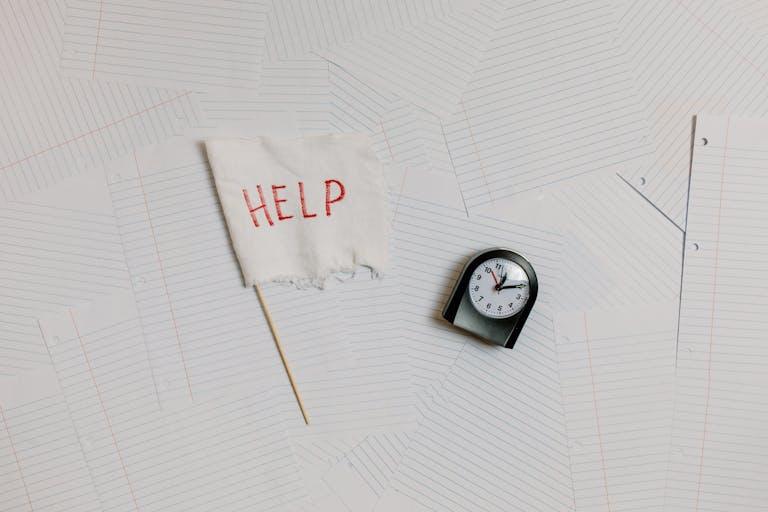Burnout Recovery and Returning to Work in Toronto: Why Feeling Better Isn’t the Whole Story
Therapy helps you return to work with clarity, boundaries, and a plan.
Burnout recovery isn’t always a straight line, and it rarely moves at the pace workplaces expect. If you’re taking time off work due to emotional exhaustion, fatigue, or stress, you are thinking: When will I be ready to go back? Did I make the right decision? I feel angry when I think about work, how can I ever step back in.
Research shows that feeling better emotionally and returning to work after burnout are actually two different processes. Knowing this can help you avoid shame, pressure, or unrealistic timelines, and plan a return that works.
What Burnout Recovery Really Looks Like
A Dutch study followed individuals on stress leave for over a year. The good news: most participants saw real improvement in symptoms like anxiety, fatigue, and emotional exhaustion.
But here’s what surprised even the researchers: only 68% had returned to work by the end of 13 months, and many still had lingering symptoms. Some went back early and relapsed. Others stayed off longer and healed more sustainably.
This means recovery is about what’s changing within you. A change in your mindset, your habits, your boundaries, and the conditions you return to are all necessary parts of your healing. This is why i use a 4-phase approach to burnout treatment and recovery for professionals in Toronto area. Yes, having tools for meditating and breathing is good, but they don’t offer the core treatment needs for the deeper identity repair that is important in burnout recovery.
It’s hard to find good information and supportive back-to-work media. This is a good resource with practical tools you might find helpful. I highly recommend:
Returning to Work After Burnout: What Helps and What Doesn’t
The study found that returning to work was more likely for younger participants and those who experienced a decrease in burnout symptoms, especially emotional exhaustion.
But work return wasn’t predicted by general stress reduction alone. In fact, people often return to work while still dealing with anxiety, low energy, or disconnection from their role. This led to slower recovery since coping tools can be used to mask effectively, but the identity issues remain.
Factors that made burnout recovery slower included:
- Longer working hours
- Avoidant coping styles (numbing, over-functioning, isolation)
- Low co-worker support
- Job insecurity
- More decision-making pressure at work
These insights matter when planning your return. If the root causes of burnout such as role overload, poor boundaries, or unresolved moral injury, are still there, healing won’t stick and it may result in continued nervous system collapse. It’s really important and helpful to have support through the process. You are not a one-size fits all worker. You have unique needs to consider.
Why Therapy Can Support Burnout Recovery in Toronto and the GTA
Therapy can help you untangle the two recovery tracks:
- Emotional recovery from burnout
- Planning a safe, thoughtful return to work
- Exploring if it’s time to find better alignment in your work.
I support professionals across Toronto, Kitchener, and the GTA who are burned out, unsure of who they are now, and overwhelmed by what a return might look like. Recovery for all my clients is identity work. Its meaning-making and values exploration. I’m amazed at how many themes overlap in different people. We are all seeking congruence and need help to find our true selves. No two people are the same and we all have different goals for our preferred future.
In therapy with me we focus on:
- Understanding what burnout cost you
- Identifying what makes a return sustainable and if there are alternatives
- Rebuilding identity, energy, and trust in yourself
Whether you’re still on stress leave or facing pressure to return, therapy gives you a space to think, feel, and strategize without shame or urgency.
Burnout Therapy in Toronto: You Don’t Have to Choose Between Work and Wellness
Your workplace may want a clean yes/no answer about your return. But real recovery isn’t that simple. You can feel clearer and calmer and still not be ready. You can return and still need support.
Burnout therapy will help you trust yourself again, get clear on what you want, and come back supported and with a sustainable plan.
Ready to talk? I offer specialized burnout recovery support online across Ontario, including Toronto and the GTA.
Visit Inlight SoulCare’s burnout therapy page or book a session today.
Source:
de Vente, W., Kamphuis, J. H., Blonk, R. W. B., & Emmelkamp, P. M. G. (2015). Recovery of work-related stress: Complaint reduction and work-resumption are relatively independent processes. Journal of Occupational Rehabilitation, 25(4), 658–668. https://doi.org/10.1007/s10926-015-9573-6
Returning to work after burnout requires intentional planning and emotional support. Many professionals across Toronto and the GTA face uncertainty when considering a return after stress leave. Burnout recovery is about reclaiming your professional identity and ensuring that your next steps are sustainable.
Online burnout therapy in Toronto offers a safe, convenient space to process the emotional and ethical challenges of returning to work. Whether you are a nurse, social worker, healthcare aide, or other helping professional, therapy can help you navigate workplace pressures while rebuilding confidence and resilience. Through online sessions, you can access guidance from the comfort of your home, making it easier to maintain consistent support throughout your recovery.
Therapy for burnout recovery in the GTA focuses on multiple areas. First, we explore the patterns that contributed to your burnout, including workplace demands, personal expectations, and boundary challenges. Second, we develop a structured plan for returning to work that respects your limits, gradually increasing responsibilities while preventing relapse. Third, we rebuild your sense of purpose and professional identity so you can approach your work with clarity and meaning.
Setting boundaries and renegotiating responsibilities are key steps in a sustainable return to work. Online burnout therapy in Toronto helps you create practical strategies to communicate your needs effectively, maintain work-life balance, and protect your emotional well-being.
If you are ready to return to work after stress leave with focus, confidence, and energy, therapy offers the guidance you need. Across Toronto and the GTA, professionals like you are using online burnout recovery support to rebuild their careers without sacrificing their well-being. Reclaim your clarity, restore your resilience, and make your return to work sustainable with specialized online therapy.















